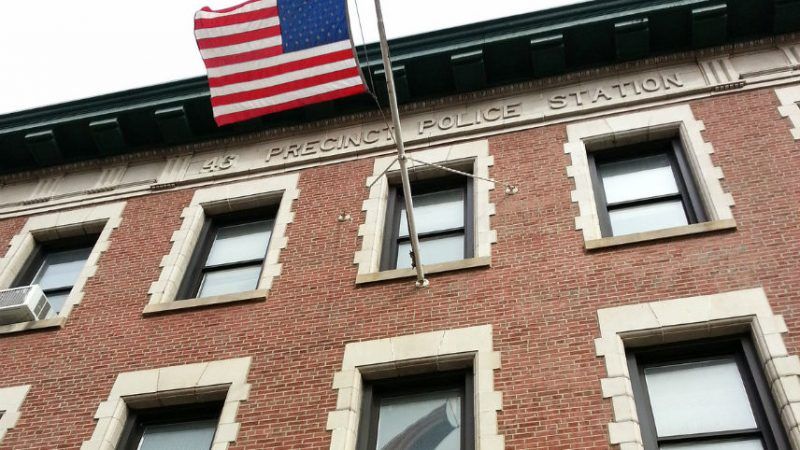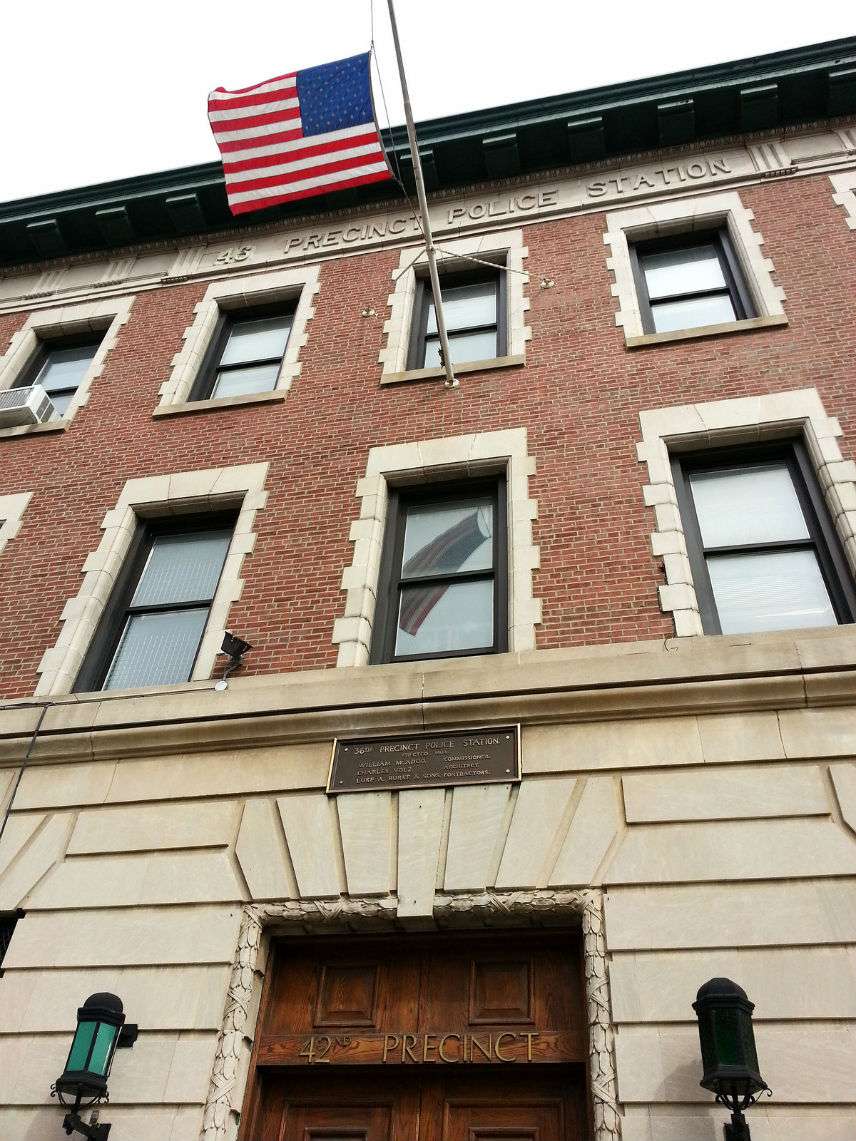New York Post Squints Hard to Find Ferguson Effect in Precinct Plagued by Misconduct Complaints
Cops in New York's 42nd District say they're afraid to do their jobs because they could get in trouble. But they've led the city in complaints for years.


The New York Post is worried about the so-called "Ferguson effect"—the hypothesis that attention to police violence leads to increased crime. But police departments' inability to rid themselves of bad cops is far more dangerous to community safety than any effect that increased attention to police misconduct might have.
Amid an extended run of low crime rates across New York City, the Post found one precinct in the Bronx where crime is up (sort of: shootings are up) and where cops insist (anonymously,natch) that they're not doing their jobs as well as they could out of fear of being accused with misconduct.
Aside from the flimsy crime-statistics angle (the Post admits crime in the 42nd Precinct is far below its 1990s level), there's another problem with the Post's story: The 42nd Precinct nearly leads the city in the number of complaints filed against it. Those complaints precede the events of Ferguson and the renewed national attention to police violence.
Back in 2013, the 42nd Precinct came in second in total claims filed against officers, with 155. And that's not just because of the amount of crime cops are responding to. The rate of claims per 100 crime complaints was also the second highest in the city that year: There were 13 claims for every 100 crime complaints in 2013.
The cost of settling claims against the NYPD as a whole has, since 2010, cost the city of New York more than claims against any other department or agency.
Since Ferguson, claims against cops in the 42nd Precinct (and in New York City overall) have actually gone down. Last year, the 42nd Precinct again had the second-highest rate of claims per crime, but this time the rate was "only" 9.35 per 100.
Reason readers may remember the 42nd Precinct as the home base of Det. David Terrell, "the busiest little cop in the Bronx," who had been accused of a slew of misconduct up to and including trying to trade sex for favors. Terrell had been on desk duty since last year, but not because of anything he did on the job; it's because of an unspecified off-duty domestic violence incident.
Remarkably, Terrell blamed Mayor Bill de Blasio's "anti-cop" agenda for his troubles. This argument is even more preposterous given that Terrell's precinct was a leader in misconduct complaints long before de Blasio occupied City Hall.
Terrell, who once allegedly played dice with some locals to determine whether he'd take them to jail or not, probably should've been dismissed from the force long ago. Like anyone else, he deserves a fair trial and the presumption of innocence until he's found guilty of any crimes in a court of law. But the protections in place before a government can imprison people were never meant to be the same protection in place before a government can fire people.
Such barriers to weeding out bad cops have led to a culture that protects "bad apples" and allows their attitudes to metastasize and spread. And not just in New York. In Minnesota, hundreds of cops convicted of criminal offenses are still on the job.
That's the effect the Post should worry about. Bad cops sully the reputations of their departments and make it harder for other officers to work effectively in the community.


Show Comments (6)